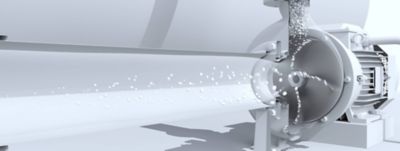Select region & language
- Europe
- Americas
- Middle East & Africa
- Asia & Oceania
Global
Austria
Bulgaria
Croatia
Czech Republic
Denmark
Estonia
Finland
France
Germany
Greece
Hungary
Ireland
Italy
Latvia
Lithuania
Luxembourg
Netherlands
Norway
Poland
Portugal
Romania
Serbia
Slovakia
Slovenia
Spain
Sweden
Turkiye
United Kingdom
Global
Argentina
Aruba
Bolivia
Brazil
Chile
Colombia
Costa Rica
Dominican Republic
Ecuador
El Salvador
Guatemala
Honduras
Mexico
Panama
Paraguay
Peru
Puerto Rico
United States of America
Uruguay
Global
Bahrain
Israel
Jordan
Kuwait
Lebanon
Oman
Pakistan
Palestine
Qatar
Saudi Arabia
South Africa
United Arab Emirates
Global
Australia
Bangladesh
India
Indonesia
Japan
Kazakhstan
Malaysia
New Zealand
Philippines
Singapore
South Korea
Sri Lanka
Taiwan (Chinese Taipei)
Thailand
Vietnam

Anti-cavitation feature in ABB drives
Did you know…
…software integrated in ABB drives protects centrifugal pumps from cavitation damage?
Cavitation, which is the formation of bubbles in a liquid, can be a serious issue for fluid handling industries by causing damage to pumping systems, reducing their lifetime and requiring costly maintenance and replacement. Many fluid handling applications can be affected by cavitation, but it is a particular challenge for the water and wastewater industry where a high number of pumps are deployed, while in the beverage and dairy industry it can impact the quality of products.
Cavitation happens when bubbles, or voids, form within a fluid because the pressure at the intake quickly drops. When the bubbles implode, they create small shockwaves. The rapid implosions generate a characteristic rumbling or cracking noise sound like rocks passing through the pump. Each implosion causes only a tiny shockwave. However, the cumulative effect impacts pump performance. Eventually, cavitation damages the pump impeller, housing and other components in the pumping system through wear and metal fatigue. Cavitation shortens the lifetime of a pump by as much as half. In the worst cases, pumps have been destroyed in a matter of minutes.
The costs most readily associated with cavitation damage is the service and repair of the pump. However additional costs can be incurred with any unplanned process stop or a cost related to lost production.
The good news is that specific ABB variable speed drives (ACS580 general purpose drives, ACQ580 water and wastewater drives and ACS880 industrial drives) connected to the pump motors now make it possible to prevent cavitation, in real time. ABB drives feature anti-cavitation software that uses patented algorithms to look for specific patterns in the motor and drive operating data, and automatically reduces pump speed to decrease the risk of cavitation occurring. The algorithm is based on measurement of pump torque and speed, comparing results with normal torque and adapting accordingly to slow down the pump with the aim of stopping cavitation.
As the anti-cavitation software is built into the drive, no extra components such as costly sensors are needed. The only additional installation effort required is to set the operating parameters. This unique feature can be found in ABB industrial drives, water and wastewater, and general-purpose drives.
Key facts:
- Applicable for fluid handling industries.
- Protects pumps from wear and metal fatigue.
- Algorithm based anti-cavitation software built into the variable speed drive.
Discover more about ABB anti-cavitation drives: